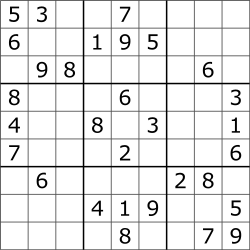There are several ways to train our brains and improve cognitive abilities, including:
Exercise:
Regular exercise has been shown to improve brain function and cognitive abilities. This can include physical exercise such as aerobic activity, as well as mental exercises such as puzzles or memory games.
Sleep:
Getting enough quality sleep is essential for brain health and cognitive function. Aim for 7-9 hours of sleep per night and try to establish a regular sleep routine.
Nutrition:
A healthy diet that includes plenty of fruits, vegetables, whole grains, and lean proteins can provide essential nutrients that support brain health. Omega-3 fatty acids, found in fish and nuts, have also been shown to improve brain function.
Learning new skills:
Learning a new skill or taking up a new hobby can challenge the brain and help to build new neural pathways. This can include anything from learning a new language to playing a musical instrument.
Social interaction:
Regular social interaction can help to improve cognitive function and reduce the risk of cognitive decline. This can include spending time with friends and family, volunteering, or joining social clubs or groups.
Meditation:
Regular meditation has been shown to improve focus, concentration, and memory. It can also reduce stress and improve overall mental wellbeing.
Overall, a healthy lifestyle that includes regular exercise, good nutrition, adequate sleep, and mental stimulation can help to keep our brains healthy and functioning at their best.
What about reading and puzzles?
Reading and puzzles are excellent ways to challenge and train the brain. Here are some tips for getting the most out of these activities:
Read widely:
Reading a variety of materials, including fiction and non-fiction, can help to stimulate the brain and improve cognitive function. It can also improve vocabulary and language skills.
Challenge yourself:
Choose books or articles that are slightly outside of your comfort zone to challenge your brain and build new neural pathways.
Take notes:
Taking notes while reading can help to improve comprehension and memory. It can also help to organize thoughts and ideas.
Solve puzzles:
Puzzles such as crosswords, Sudoku, and jigsaw puzzles can help to improve cognitive function and memory. They also provide a sense of satisfaction and accomplishment.
Increase difficulty gradually:
Start with easier puzzles or reading materials and gradually increase the difficulty as you improve. This can help to avoid frustration and keep you motivated.
Practice regularly:
Consistency is key when it comes to brain training. Try to set aside regular time each day for reading or puzzles, even if it’s just a few minutes.
Mix it up:
Vary the types of puzzles or reading materials to keep your brain engaged and challenged. Trying something new can also help to build new neural pathways and improve cognitive function.
Does research and studies prove that puzzle solving helps the brain?
There is a growing body of research that suggests puzzles are beneficial for the brain. Here are some key findings:
Improve cognitive function:
Studies have shown that regularly solving puzzles can improve cognitive function and memory. Puzzles challenge the brain and require problem-solving skills, which can help to build new neural pathways and improve cognitive abilities.
Reduce the risk of cognitive decline:
Research suggests that regularly engaging in mentally stimulating activities such as puzzles can help to reduce the risk of cognitive decline and dementia later in life.
Improve mood:
Solving puzzles can have a positive impact on mood and emotional well-being. It can provide a sense of accomplishment and satisfaction, and can also reduce stress and anxiety.
Enhance creativity:
Puzzles require creative problem-solving skills, which can help to enhance creativity and innovative thinking.
Improve visual-spatial reasoning:
Puzzles can help to improve visual-spatial reasoning skills, which are important for tasks such as reading maps, interpreting diagrams, and navigating in three-dimensional spaces.
Overall, the evidence suggests that puzzles are good for the brain and can have a positive impact on cognitive function, mood, and creativity. Whether it’s crossword puzzles, Sudoku, or jigsaw puzzles, regularly engaging in mentally stimulating activities can help to keep the brain sharp and healthy.

